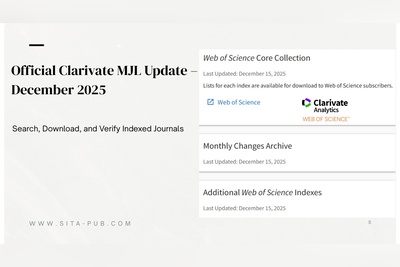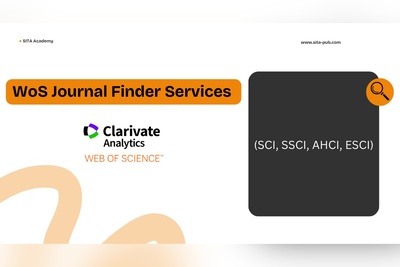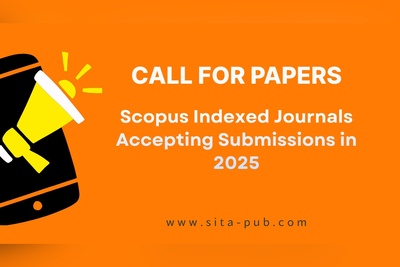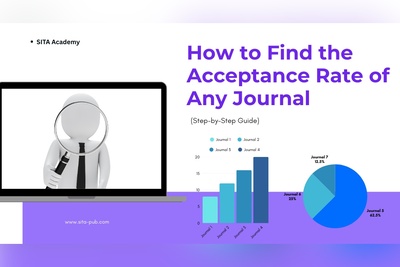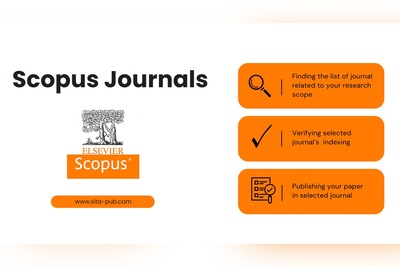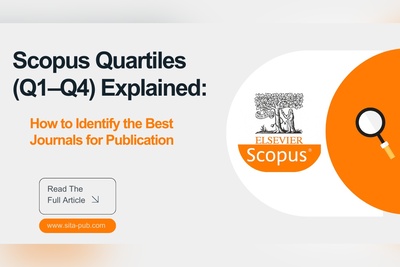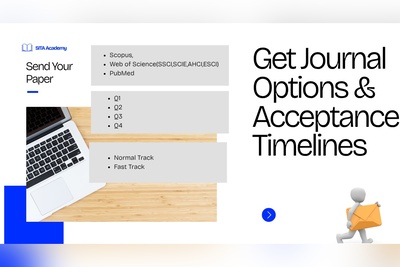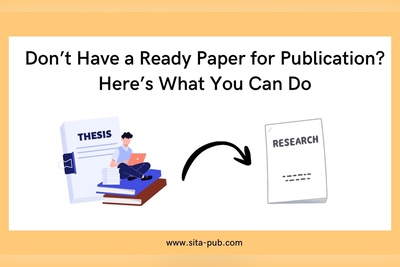Do Journals Publish PhD Theses? Understanding the Rules and Options
Wondering how to publish your PhD thesis in top journals? Discover the step-by-step guide to converting your thesis into publication-ready articles, selecting the right journals for Scopus, Web of Science, and PubMed publications.

Introduction
Completing a PhD is one of the most significant academic achievements. After years of research, experiments, and writing, graduates finally defend their thesis and earn their degree. But for many researchers, the journey does not end there.
Publishing your research in international journals is a crucial next step. Not only does it validate the quality of your work, but it also allows your findings to contribute to the global scientific community.
Most journals require high-quality academic English manuscripts and adherence to international publishing standards.
This guide will explain why PhD students should publish their theses, how to convert a thesis into publishable articles, the journal options available, and how professional services can assist.
Why PhD Students Need to Publish Their Thesis

Publishing your PhD research offers multiple benefits:
Academic Recognition and Career Advancement
Many universities in some countries, including Kuwait, Australia, Japan, and Saudi Arabia, require students to publish research in peer-reviewed international journals for graduation approval or degree completion.
For faculty members, publications are often mandatory for promotions, tenure, and research funding. Publishing in indexed journals like Scopus or Web of Science enhances your academic profile and global recognition.
Contributing to the Scientific Community
Publishing allows researchers to:
Share novel findings with a global audience
Influence evidence-based practices
Encourage collaboration with scholars in similar fields
Your research can impact future studies and clinical or practical applications in your discipline.
Funding and Scholarship Opportunities
Many grants, fellowships, and postdoctoral programs prioritize candidates with published research. A strong publication record increases your chances of securing international research collaborations.
Compliance with Institutional Requirements
Some universities mandate publication as part of degree completion or thesis submission. For example:
Harvard University, USA: Some PhD programs, particularly in the sciences, encourage or require at least one published paper before graduation.
Stanford University, USA: Certain doctoral programs expect students to have peer-reviewed publications prior to thesis defense.
University of Cambridge, UK: Several departments encourage PhD candidates to publish one or more papers before submission of the thesis.
University of Oxford, UK: Some research programs require PhD students to publish work in peer-reviewed journals to demonstrate research impact.
ETH Zurich, Switzerland: Doctoral students in natural sciences and engineering are often required to have at least one journal publication for graduation approval.
National University of Singapore (NUS), Singapore: Publication in indexed journals may be a prerequisite for certain PhD programs.
University of Melbourne, Australia: Some faculties require PhD candidates to publish one or more articles as part of their doctoral submission.
University of Tokyo, Japan: Certain doctoral programs require students to have publications in recognized journals for thesis approval.
Tsinghua University, China: PhD students in STEM fields often need at least one paper published in an international journal for graduation.
Kuwait University, Kuwait: Some faculties require at least one publication in a peer-reviewed journal for graduation.
Qatar University, Qatar: PhD students must demonstrate at least one international publication to meet graduation criteria.
University of Jordan, Jordan: Certain programs require published work as part of the thesis submission.
King Saud University, Saudi Arabia: Faculty and PhD students must meet publication benchmarks for promotion and research funding.
Publishing is therefore not only a personal achievement but also a requirement in many top universities worldwide, enhancing visibility, credibility, and academic career opportunities.
Can You Publish Your PhD Thesis Directly in Journals?
Short answer: No.
Journals do not accept full-length theses due to their length, structure, and format. A typical thesis is hundreds of pages long and contains detailed methodology, literature reviews, and appendices that are not suitable for journal articles.
Instead, you must extract publishable articles from your thesis and restructure them according to journal standards.
How to Convert Your PhD Thesis into Publishable Articles
Transforming your thesis into journal-ready articles involves several steps:
Extract Key Findings
Identify chapters or sections with original research or novel insights.
Focus on one main research question per article. A single thesis can often yield 2–4 publishable papers.
Restructure the Content
Use standard sections: Introduction, Methods, Results, Discussion, Conclusion.
Condense the content: Journal articles are typically 5–15 pages long.
Remove excessively detailed literature reviews or appendices.
Example: A 50-page thesis chapter on a clinical study with 30 participants can be condensed into a 6-page article focusing on methodology, results, and clinical significance.
Translate into Academic English
Translation is essential if your thesis is in Arabic, French, Russian, Spanish, or any other language.
Professional translation ensures clarity, readability, and adherence to journal standards.
Tip: High-quality translation can significantly increase acceptance chances in international journals.
Journal Options for Publishing PhD Research
After preparing your manuscript, the next step is selecting the right journal. This choice affects visibility, impact, and credibility.
Indexing and Quartiles
Reputable journals are often indexed in recognized databases:
Scopus: Broad coverage with metrics like CiteScore and quartile rankings.
Web of Science (WoS): Includes impact factor, SSCI, SCIE, AHCI, ESCI.
PubMed/Medline: Focused on biomedical and health sciences research.
Quartile Ranking (Q1–Q4):
Q1: Top 25% of journals, highest impact
Q2: 25–50%
Q3: 50–75%
Q4: Bottom 25%
Publishing in Q1 or Q2 journals increases academic recognition and credibility.
How to Choose the Right Journal
Quick Selection Guide:
Scope: Ensure the journal aligns with your research topic.
Indexing: Prefer journals indexed in Scopus, WoS, or PubMed.
Impact Factor / Quartile: Higher-ranked journals may have stricter review processes but offer better recognition.
Open Access vs. Subscription: Open access increases readership but may involve higher fees.
Submission Guidelines: Review formatting, word limits, and referencing style.
Callout Box: Choosing the Right Journal
Ask yourself:
Is the journal’s scope a match for my research?
Is it recognized in reputable databases?
Does it allow the fastest and most impactful publication?
Rules for Publishing PhD Thesis Content
Publishing an article derived from a thesis requires adherence to rules and ethical guidelines:
Originality: Articles must present novel research. Journals typically do not accept previously published content.
Proper Citation: If parts of your thesis are publicly available (e.g., in repositories or conferences), cite them correctly.
Author Contributions: List all contributors accurately.
Journal Policies: Follow specific requirements regarding length, formatting, data availability, and ethical approvals.
PhD Thesis Publication Assistance at SITA Academy
Transforming a thesis into multiple publication-ready articles can be time-consuming, especially for non-native English speakers.
At SITA Academy, we help graduate and PhD students prepare their theses for publication in internationally recognized journals such as Scopus, Web of Science, and PubMed.
Benefits of Our Article Extraction Services
Convert your thesis into English-language, publication-ready articles, no matter the original language.
Suggest reputable journals suitable for your research topic.
Provide guidance on ethical standards, formatting, and submission.
How to Start the Process
Send Your Thesis: Upload your file via our website, email, or WhatsApp.
Review and Proposal: Our team evaluates your thesis and suggests:
Number of extractable articles
Possible titles for each article
Related fees
Confirmation and Process: Once you approve, we start the extraction process.
Delivery and Journal Recommendations: Receive publication-ready papers with recommended journals, including indexing, impact factor, and submission guidelines.
Publication Assistance: Formatting your paper and submitting it to your selected journal. Continuous follow up until acceptance and publication.
Tip: Using professional services ensures your research meets international standards.
Conclusion
Publishing your PhD thesis as journal articles is critical for academic visibility and career advancement. By extracting articles from your thesis, translating them into high-quality English, and targeting suitable journals, you can:
Share your research with the global scientific community
Meet university and institutional requirements
Increase opportunities for grants, collaborations, and career progression
Instead of writing new papers from scratch, leverage your existing thesis with professional guidance.
Publishing your research internationally is now within reach, even if your original thesis is in Arabic or another language.
Verified Contact Channels
If you have any questions, inquiries, or would like to learn more about our services, please don't hesitate to reach out to us. Our dedicated team is ready to assist you.






